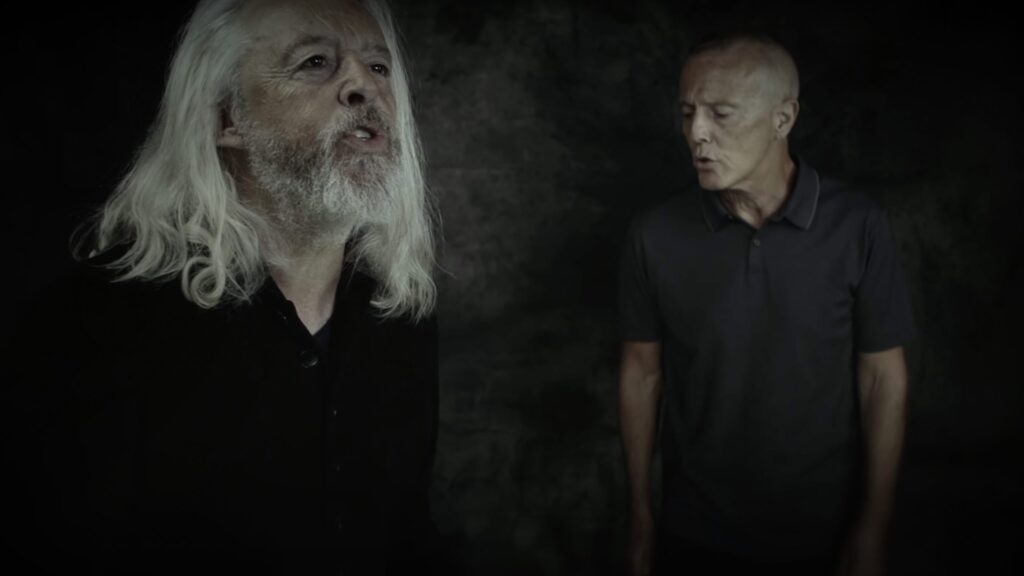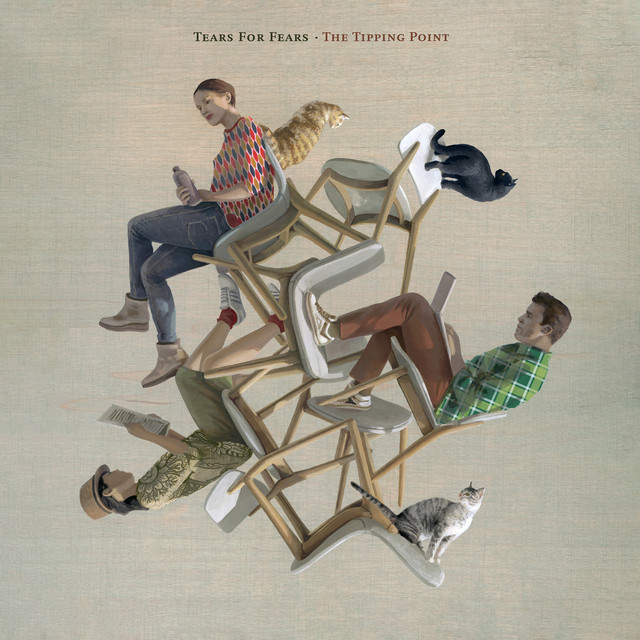
I do not need musicians to age gracefully. I do expect them to age honestly. I don’t expect them to stop singing about love and intimacy, but instead to infuse their songs with their wisdom and experience. All of us have experienced something from a musician of, shall we say, advanced vintage that desperately attempts to hide the paunch, the hair still long, but thin and stringy, the sunglasses in the video hiding bags beneath eyes. There is an intellectual dishonesty one sees in artists who willfully deny their life’s journey.

It is with no small sense of gratitude that I can say Tears For Fears could never be accused of this. Even back in their heyday of the 1980s, Roland Orzabal and Curt Smith regularly infused songs of love won and lost – the usual fare – with bigger ideas. They gave you more to think about than the standard hedonistic appetites.
Things haven’t been easy. After three albums, Smith was out and Orzabal continued on under the band name. They reconvened for 2004’s Everybody Loves a Happy Ending, lightly teasing at the title of one of their biggest hits, and also hinting at conclusions more than resolutions. There would not be new music from the duo until additional tracks emerged on their 2017 Greatest Hits album.
So what provoked the duo to finally bring a new album to bear? As with so many cases, tragedy. Orzabal said in an interview that the rekindling of both the friendship and the collaboration came because of the death of his wife in 2017. The album, The Tipping Point, was nearly abandoned halfway by Smith, but the duo found a way of working together, thus bringing the collection to completion.
The title alone is evocative. The tipping point is that moment between the last semblance of control and when fate takes over. As slightly illustrated on the album cover, imagine leaning back on the hind legs of the chair, and being caught in that slipping moment where you can no longer force your weight forward to keep from falling back. It’s out of your hands. Tears For Fears is not clever for clever’s sake. This is the theme of the album, and at every turn they offer up thoughts you need to be clear-minded enough to process. Can you handle it?
It’s a good listen, but not an easy one. The title cut is most representative of the band’s previous work, mirroring “Everybody Wants To Rule The World”‘s shuffling beat. The rest of the album spans a variety of moods but generally positions inside melancholy. You find it in the elegant “Rivers of Mercy,” “Please Be Happy,” and the plaintive closer “Stay.” It’s not all mellow. “My Demons” burbles. “End of Night” crackles with a restrained electropop energy, but throughout, the band has a lot on its mind.
I appreciate it, but I have to wonder how people will receive it. A small sample of reviews indicate that we in that critical world think it’s great. On the other hand, I’ve heard from several of the band’s fans, particularly when initial tracks were rolling out, and they have been mixed to disappointed. It’s very much like the muted reception Squeeze received for their 2017 release, The Knowledge. Again, the critics thought highly of it while the public consensus was that it lacked the energy of “Hourglass,” “Pulling Mussels,” “Tempted,” you know the drill.
Tears For Fears is, in a lot of important ways, like Squeeze. The intelligence displayed by both bands is undisputed, but the old saying holds true that you have to have a good beat and be able to dance to it. The Tipping Point is decidedly not that kind of record. It’s a good record that I can see in a few months being rounded up in my estimation, but it’s not a candy-coated trifle that goes down easy with a can of Mountain Dew. It asks for more than your attention. I think it deserves that much from listeners. Otherwise, with the question being whether consumers really want their music heroes to grow honestly, we’ll have our answer.
Well said. I recently released my first album in more than twenty years and in my case the response has been positive with old fans and critics for the uptempo, power pop tunes but not so with the more introspective songs on the album. Perhaps people would rather not be reminded of (or face) the vicissitudes of time. Eventually, I took (former Not Lame founder) Bruce Brodeen’s advice and pared the 17-song original release down to 10 of the uptempo songs and sales along with airplay, increased. In any event, one has to pen the songs as they present themselves or what’s the point.
I appreciate your thoughtful take on the position we older artists find ourselves in.